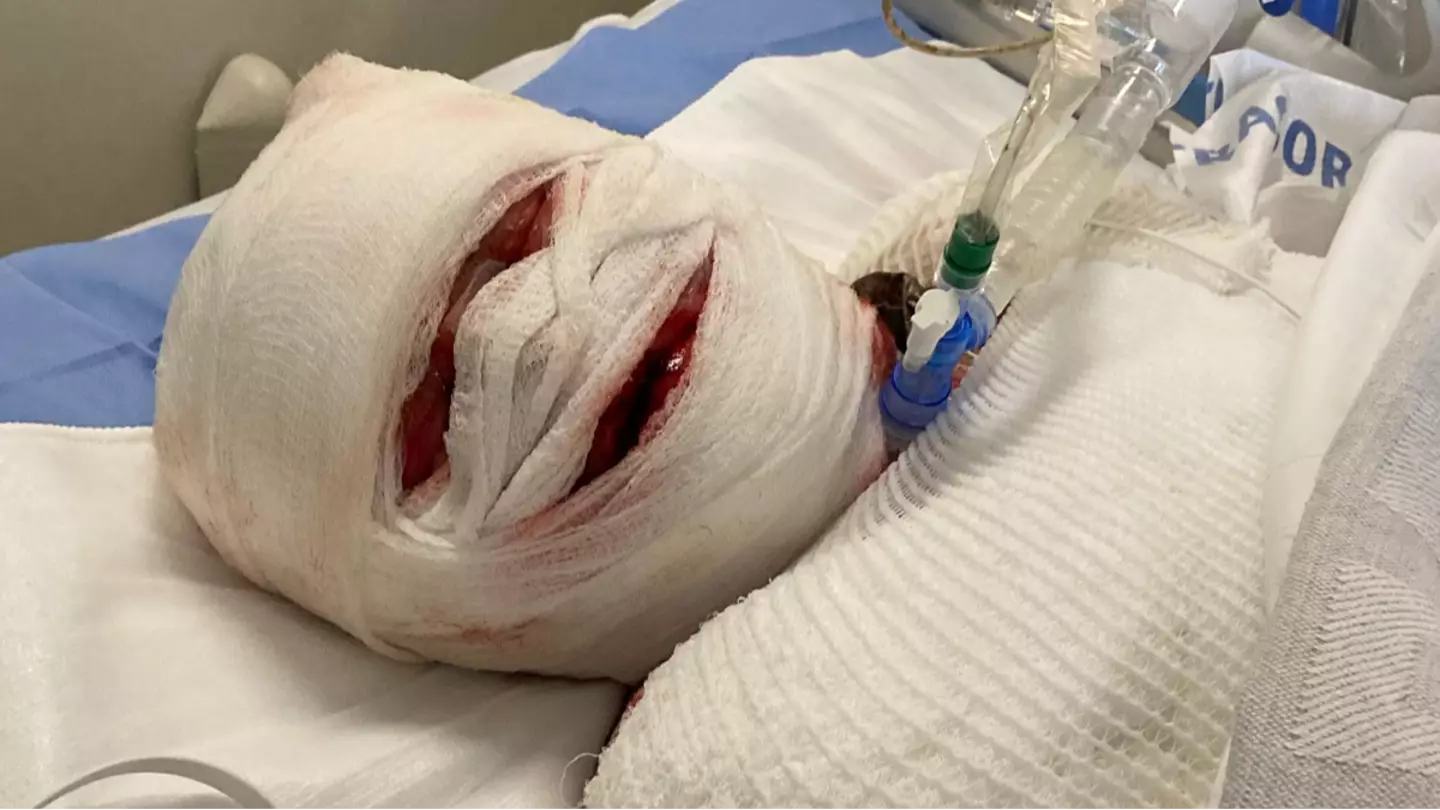A Nebraska woman has shared her harrowing experience after her skin began to ‘fall off’ as a result of taking ibuprofen regularly. Aleshia Rogers, who works in child and education, began using the common pain relief medication after delivering her son via caesarean section in August 2020. Even after recovering from the birth, she continued to take ibuprofen twice daily to manage pain and swelling.
Three weeks after the birth of her son, Jax, Aleshia started experiencing flu-like symptoms, including a high fever and a painful burning sensation when swallowing. Her eyes became swollen and felt like they were burning, and a small rash appeared on her chest. This was initially thought to be scarlet fever by ER nurses.
After returning from the hospital, Aleshia noticed blisters forming on her face, and her skin began peeling off. Alarmed, she returned to the hospital, where she was diagnosed with Stevens-Johnson Syndrome (SJS), a severe and rare reaction often triggered by medications such as ibuprofen. Her condition progressed to Toxic Epidermal Necrolysis (TENS), the most severe form of SJS.
Aleshia was moved to a burns intensive care unit and placed in a medically induced coma for three weeks as she battled sepsis and multi-organ failure. During this time, she underwent a full-body skin excision and grafting process, as 95 percent of her skin had detached from her body.
She also received an amniotic membrane transplant on her eyes to help reduce inflammation and prevent scarring.
Despite a grim prognosis with a 5-10 percent chance of survival, Aleshia was discharged from intensive care after a month, surprising her family with her recovery. She emerged from the ordeal looking ‘unrecognizable’ to those who knew her.
“I had absolutely no idea what had happened to me. I forgot that I had given birth. I lost a lot of memories,” she shared. “My family told me it really was touch-and-go as to whether I’d make it through. I’ve been told so many times that I’m a miracle. It’s always a thought but I live my life like tomorrow isn’t promised and try not to live in fear.”
Despite having used ibuprofen since age 14 to alleviate period pain, doctors could not pinpoint why Aleshia developed SJS. “There’s no prevention and once it starts, there’s nothing you can do to stop it. And there’s definitely a chance I can get it again at any time,” she explained.
Five years on, Aleshia still deals with complications from SJS and advises caution with regular use of pain medications. “I don’t want people to be afraid of medicines, but I want people to be aware and mindful of what can happen,” she cautioned.
According to BostonSight, approximately 33,000 people worldwide are affected by SJS each year, including around 1,500 in the United States. SJS is fatal in 5 percent of cases, while 40 percent of those diagnosed with TENS do not survive.
The initial symptoms of SJS often include a sore throat and a painful rash that progresses to blisters and skin peeling. The Mayo Clinic notes that other symptoms can include painful urination, light sensitivity, fatigue, and fever. Immediate medical attention is crucial if any of these symptoms are observed.

